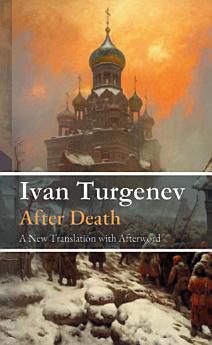After Death
About this ebook
In After Death, Turgenev explores the haunting power of memory and the protagonist's inability to let go of his romanticized vision of Clara Militch, even after her death. The novella's central theme-the persistence of love beyond death-reflects Turgenev's fascination with the metaphysical, as well as his ongoing exploration of the ways in which the past continues to shape the present. The protagonist's obsession with Clara Militch can be seen as a metaphor for the broader human tendency to idealize the past, often at the expense of fully engaging with the present.
This novella also reflects Turgenev's interest in the supernatural, a theme he had explored in earlier works such as Ghosts. Here, however, the supernatural is less explicit, as the boundaries between reality and fantasy are blurred by the protagonist's obsession. The story's melancholy tone and introspective narrative style exemplify Turgenev's ability to combine psychological depth with philosophical reflection, making After Death one of his most poignant and thought-provoking works.
This critical reader's edition presents a modern translation of the original manuscript, crafted to help the armchair philosopher engage deeply with Turgenev's works through clean, contemporary language and simplified sentence structures that clarify his complex ideas. Supplementary material enriches the text with autobiographical, historical, and linguistic context, including an afterword on Turgenev’s history, impact, and intellectual legacy highlighting the personal relationships that shaped his philosophy (focusing on Dostoevsky, Tolstoy and Gogol), an index of the philosophical concepts he employs (emphasizing Realism and Nihilism) a comprehensive chronological list of his published writings, a brief biography, and a detailed timeline of his life.










